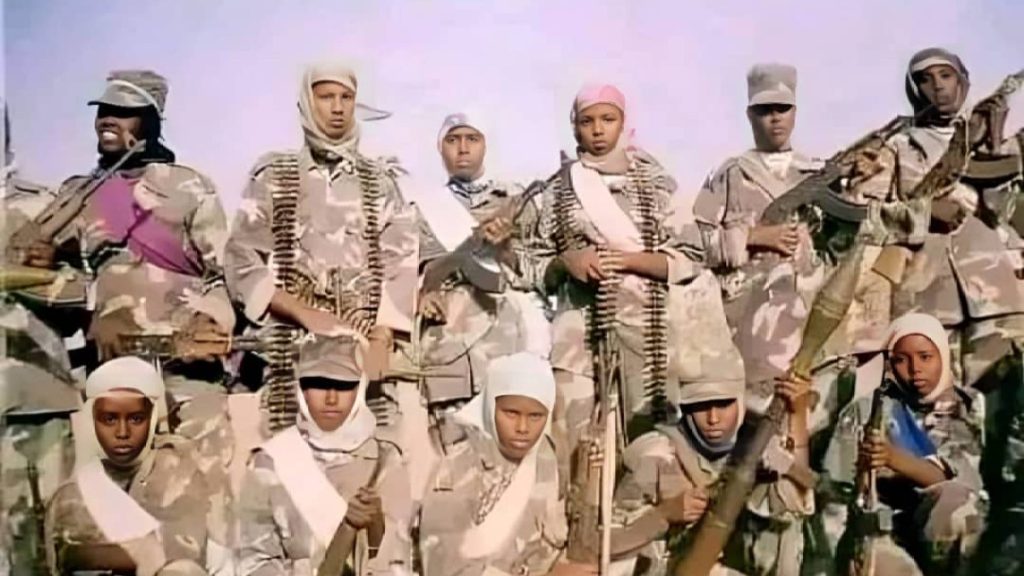Hinda Aden’s life has been indelibly shaped by the decades-long conflict in Ethiopia’s Ogaden region. In 2006, at just 22 years old, she found herself thrust into the heart of the war, fleeing through the darkness from Ethiopian military forces. This marked the culmination of years of escalating tension and the beginning of Hinda’s transformation into a battle-hardened rebel fighter. Her initial foray into combat was a harrowing experience, leaving her surrounded by the bodies of fallen comrades, including three fellow female rebels. The memory of this first battle, fought in the open fields of Qorahay province, remains vivid even years after the official peace agreement. This experience, and many others like it, cemented Hinda’s commitment to the Ogaden National Liberation Front (ONLF) and their fight for self-determination.
The conflict in Ogaden has deep historical roots, stemming from the colonial partitioning of Somali territories in East Africa by the British Empire in 1948. This act ceded Ogaden to Ethiopia, sparking resentment and a sense of injustice among the ethnic Somali population. The ONLF, initially a social and political movement, evolved into an armed group in the 1990s, fueled by the Ethiopian government’s dismissal of their calls for a referendum on independence. The subsequent decades witnessed a brutal and protracted war, marked by widespread human rights abuses, displacement, and immense suffering. For Hinda, growing up in this environment meant living under constant surveillance, enduring home raids, and witnessing the devastating impact of violence on her community.
Hinda’s personal experiences mirror the broader struggles faced by the people of Ogaden. Her childhood was punctuated by fear and uncertainty, living under the constant threat of arbitrary arrests and violence. The Ethiopian government’s relentless pursuit of her mother, a senior ONLF rebel fighter, further intensified the pressure on the family. Hinda’s own wrongful imprisonment, based solely on suspicion of communicating with her mother, ultimately led her to join the ONLF. She saw no other option but to flee her home, embarking on a perilous journey to join the rebel ranks. This journey involved navigating through dangerous territory, relying on the help of strangers, and constantly fearing capture.
After undergoing four years of rigorous military training in Eritrea, Hinda returned to Ogaden in 2006, ready to fight for her people’s cause. The years that followed were filled with intense combat experiences, where survival became a daily struggle. Amidst the chaos and death, she found love and married a fellow ONLF fighter. However, their happiness was short-lived. Seeking medical treatment for her husband’s deteriorating health led them to Hargeisa in northwest Somalia, where he mysteriously disappeared. Hinda’s desperate search for him eventually revealed a devastating truth: her husband had been renditioned back to Ethiopia, where he endured years of torture in the notorious Jail Ogaden. This forced Hinda into exile, separated from her husband, her family, and the fight she had dedicated her life to.
The 2018 peace agreement between the ONLF and the Ethiopian government brought an end to the protracted conflict and allowed Hinda to return to Ogaden. However, the reunion with her husband was bittersweet. He bore the physical and psychological scars of years of imprisonment and torture. Adjusting to civilian life after years of war presented a new set of challenges for Hinda and other former rebel fighters. The transition was difficult, marked by the lingering trauma of war, the loss of livelihoods, and the struggle to reintegrate into a society still recovering from decades of conflict.
The formation of Hormud, a women’s group consisting of former ONLF female fighters, offered a crucial support network for Hinda and others like her. The organization provides a safe space for these women to share their experiences, cope with trauma, and rebuild their lives. While the peace agreement has brought an end to open hostilities, the long road to recovery and reconciliation remains. The women of Hormud embody the resilience and determination of the people of Ogaden, as they navigate the complex realities of post-conflict life. Their stories are a testament to the enduring impact of war and the ongoing struggle for a peaceful and just future. For Hinda, the silence of the guns represents not an end, but a transition into a new phase of her life’s journey. The war may be over, but the fight for a better future continues.

